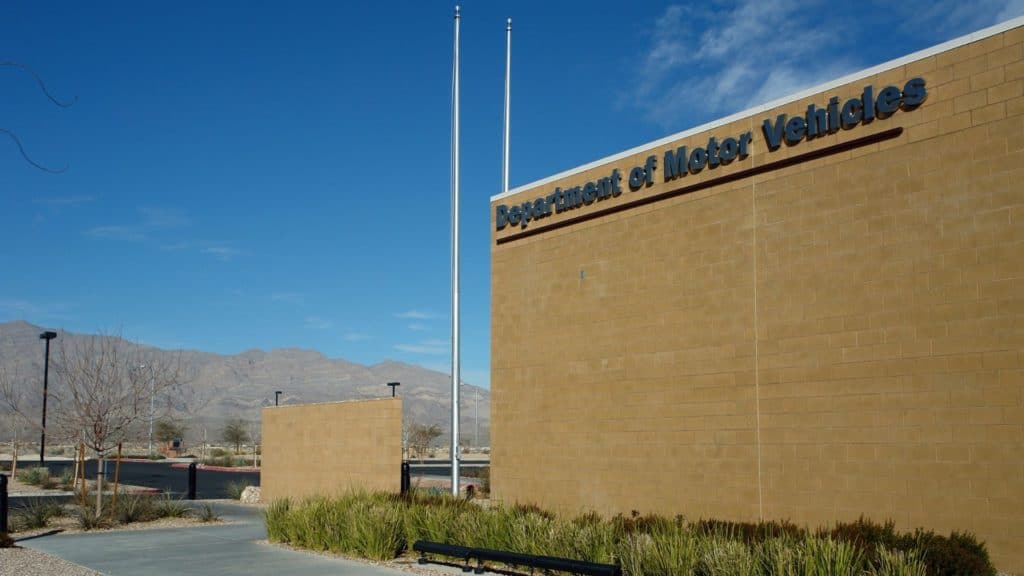For ex-felons who are re-entering society, access to a driving record is necessary for many reasons, securing gainful employment.
This article will discuss what felons must do if they need access to their driving records.
Contents
What Is A Driving Record?

In simple terms, a driving record is a document compiled by your state government that contains your driving history.
Driving records are referred to by different names in different states. Many states call them motor vehicle reports.
We’ll also spend some time talking about the different kinds of driving records and the exact nature of the information they contain.
By reading this article, felons who need to access their driving records will have a clear idea of how the process works.
There Are Different Kinds Of Driving Records
From the moment you were issued your very first driver’s license, your state government has maintained some driver record on you. You have a driving record in every state where you ever held an active driver’s license.
In most states, driving records for regular class-C (civilian) drivers are at the state DMV or motor vehicle bureau.
Likewise, driving records for licensed truck drivers, commonly known as “CDL’s” are usually under separate state agencies’ jurisdiction.
If you need to access your driving record, make sure you know which state agency to contact. We’ll deal with this more later in the article.
States Refer To Driving Records By Different Names
Different states refer to their driving records by different names. Many states still refer to driving records as motor vehicle records or “MVRs,” while in other states, they’re called driver histories.
What Kind of Information Is On a Driver Record?
While the information included on a driving record varies between states, a driving record will consist of traffic offenses and more serious moving violations such as DUIs.
A driving record sometimes includes other information, including any instances where your driver’s license went into suspension or revocation.
Many States Use Points-Based Systems
In 2021, most states have implemented some points-based system that penalizes drivers with specific points for traffic violations.
If a driver accrues a certain number of points over a two or three-year period, they may be required to attend traffic school, or their license may be suspended or revoked.
If you reside in a jurisdiction with a point system, your driving record may show how many points you have accrued over a given period.
Keep in mind that in many states, less-serious tickets might be erased from your record after a certain length of time.
Other more serious offenses such as criminal speeding stay on your record for years, or permanently in some jurisdictions.
Your Driving Record Won’t Contain Any Personal Information
After a series of scandals throughout the 1980s and 1990s where the federal government sued state government officials for negligently releasing drivers’ personal information to malicious third parties, the federal government placed state DMVs under a rigorous set of restrictions.
The Driver Privacy Protection Act or “DPPA” regulates the information state DMVs are allowed to release to third parties.
While state DMVs are still allowed to release driving records to individuals and third parties for certain specific reasons such as employment screening, driving records themselves are restricted and considered privileged information.
When you access your driving record, it will contain no personal information other than what is relevant to your driving history.
Other than moving violations and other traffic-related offenses, it will not record the holder’s criminal history.
How A Driving Record Impacts Your Life
Your driving record status affects day-to-day life in many fundamental ways that make re-entry into society difficult.
If a driver has accrued enough points to earn a suspension or a revocation, they may face hefty fees and other complex requirements to reinstate their license.
For severe offenses such as DUI’s with fatalities and vehicular manslaughter, revocation may be permanent.
Individuals who are forbidden or somehow restricted from getting a driver’s license will deal with a lack of transportation, making it challenging to move around or even secure employment.
Serious Driving Offenses Can Affect Employment
Individuals with a record of serious driving offenses such as DUI’s, negligent homicide, or vehicular manslaughter are not allowed to hold jobs as delivery drivers or commercial truck drivers. Individuals convicted of these offenses also have their licenses revoked.
Traffic Offenses Mean Higher Insurance Premiums
In all 50 states, most traffic tickets will be reported to your insurance company, although this can take anywhere from a couple of weeks to six months.
Once an insurance company has received word of a ticket, they raise the driver’s insurance premiums accordingly.
In extreme cases, if an insurance company sees a pattern of repeated traffic violations, or they find out about a serious offense such as criminal speeding, they may cancel the driver’s insurance policy.
Checking Your Driving Record

All states now have routine procedures for individuals and other authorized third parties, such as prospective employers, to access driving records for employment screening matters.
Many states use online services for these record requests. If you want to obtain a driving record for a commercial driver’s license, the DMV may send you to a different state agency.
You Can Access Driving Records Online
Requesting driving records online is the quickest and most effective way to obtain one.
When individuals request records online, they will pay a fee with a credit card or a debit card. If received online, you may get access to your driving record right away.
However, in some cases, online record requests may take a few days or longer to process, which means individuals may wait a little while before they receive their driving record.
Obtaining Your Driving Record Is Simple
For drivers without internet access or who feel uncomfortable making their request online, you can go to your local DMV office. State DMV’s often have multiple office locations, and mail
inquiries from drivers go to local p.o. boxes.
You Will Need Documentation
To obtain your driving record, you will need to submit the required documentation and information. For online record requests, you will surrender the required documentation electronically.
Before you request your driving record, it’s a good idea to check ahead of time and ensure that you have all of the required documents.
Although the documentation required to obtain a driving record will vary between states, you will need to supply at least some of the following documents and personal information:
- Commercial Driver’s License
- Identification Card
- College ID Card
- Vehicle Registration
- Driver’s License
- Passport
- Visa or Resident Alien ID.
- Record Request Form
- Social Security Number
- Driver License Number
- Date Of Birth
- Mailing Address
To Access Your Driving Record, Contact Your Local DMV Today
In many states, getting a hold of your driving record is a straightforward procedure. While many states charge fees and require documentation, obtaining them is fast and inexpensive.
While the information contained in individual driving records varies from one state to another, your driving record will only have information about traffic tickets, revocations, and suspensions. Some states may penalize driving offenses with a points-based system.
Most driving records requests are made online with a credit card, although physical locations may accept cash, check, or money orders. If you need to access your driving record, contact your local DMV today.
Frequently Asked Questions
We’ve compiled a brief frequently asked questions list here.
I want to request my driving record online, but I don’t know the web address for my DMV. How do I find it?
If you go to your state government website by typing the name of the state where you reside, followed by .gov (so, for example, www.texas.gov), you should find a link to the state DMV’s website.
Also, you can type “Texas DMV” or something similar into your web browser.
Will my DMV let me access my driving record without a credit card?
Yes, while you may have to visit your local DMV office, most locations will also take cash, check, or money orders.
I’m still worried my driving record could contain sensitive information. What do I do?
It is best to contact your local DMV to get more detailed information and discuss your concerns.
Most DMVs will have clear disclaimers available online that cover relevant privacy laws and what your rights are as a license holder.
Who else has access to my driving record information?
No one except law enforcement. In some jurisdictions, prospective employers or government officials may be allowed to access driving records for employment screening.
What other services does my local DMV provide?
Your local DMV provides many services related to vehicle licensure. You can apply for a new driver’s license at the DMV or replace a lost one. Your DMV can also issue vehicle registrations and replacement license plates.
What is this Real ID Program I keep hearing about?
The Real ID refers to new, enhanced driver’s licenses required for all domestic air travel by U.S. citizens within the United States, beginning October 1st, 2021.
If you do not have a Real-ID-compliant driver’s license on October 1st, 2021, you will not be allowed to fly inside the United States, even domestically.
Individuals without the Real ID will not be permitted to enter certain government facilities, such as nuclear power plants.
Getting A Real-ID Is Difficult
Real-ID compliant driver’s licenses are already available in some states. They are tamper-proof driver’s licenses with state-of-the-art security features, designated by a symbol stamped in the upper right-hand corner.
Many states have delayed rolling out Real ID-compliant driver’s licenses due to the COVID-19 pandemic and do not expect to be ready by the October 2021 deadline.
If you need a Real-ID-compliant driver’s license, contact your state DMV right away.


